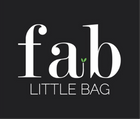
Is Your Tampon Or Pad Really Biodegradable? By Charlotte Wilson
With increasing awareness of the impacts of global warming and climate change, many of us would like the option to use sustainable period products and have more eco-friendly periods. Although period products may highlight their environmental benefits on the packaging, these claims may be misleading with only a small proportion of ingredients used being biodegradable. What is the truth about the eco-friendliness of pads and tampons?
In this article, we will look into whether pads and tampons are biodegradable and the impact they can have on the environment.
Are Tampons Or Pads Worse For The Environment?
Single-use, non-organic tampons and pads both contain plastic, which is very slow to decompose and risks releasing toxic substances and microplastics into soils and water (especially when flushed!). Over a lifetime, a woman uses on average 11,000 pads and tampons and will throw away roughly 400 pounds of period product packaging, resulting in high levels of plastic use that is harmful for the environment. The Women’s Environment Network (WEN) found that 10% of sewage-related debris collected from beaches in 2020 consisted of period pads, tampons, and applicators.
But if you are choosing between tampons or pads, then tampons (especially those without applicators) are the slightly more environmentally friendly choice as they contain less plastic. According to the WEN, single-use menstrual pads can consist of up to 90% plastic.
Are “Biodegradable” Tampons and Pads Actually Biodegradable?
The difficulties of being eco-friendly during menstruation continue as even period products claiming to be biodegradable or compostable may be misleading. Although terms on packaging such as ‘plant based’ implies these products are biodegradable, this claim may only mean that a relatively small proportion of the ingredients have come from plants. The Royal Society of Chemistry found that disposable period pads can contain as much as 90% plastic. This ingredient is found in both the internal layers and the backs of pads to ensure they do not leak.
Biodegradability relies on a number of things coming together. Firstly, whether the material itself can biodegrade rapidly in certain conditions, and secondly, where this material ends up at the end of life. Materials can be sustainably sourced like some organic cottons and can indeed biodegrade over time and in correct environments. However, when it comes to used period products, both tampons and pads, they will only ever end up in 2 environments. One of these is increasingly common and that is to be incinerated, often then creating energy which is re-used (energy from waste) . The second is in landfill. If incinerated, clearly being even technically biodegradable is of little relevance. Landfills are an aerobic environment, meaning there is no light, heat or oxygen. This reality inhibits biodegradation significantly, so even products that in perfect conditions could biodegrade relatively quickly won't. So when companies describe tampons and pads as being biodegradable and compostable, this is more in theory than in practice.
How Long Does It Take For Pads And Tampons To Decompose?
It depends…. Organic cotton products will biodegrade faster, BUT it depends on where they end up - if incinerated as mentioned, then it’s irrelevant, if landfilled then despite no plastic ingredients it will still take many years to break down for the reasons mentioned. Very few people can and will compost their used tampons and pads in their own gardens… and even then you may find animals get to them first!!
If environmental considerations are most important when finding the best period products to use during your menstrual cycle, then products such as period products made from organic cotton, reusable pads, and menstrual cups are the best options. Disposing of your pads and tampons, whatever brand you choose, in FabLittleBags, which are sustainably made from sugarcane and other recycled materials, rather than flushing also helps to reduce the environmental pollution caused by flushing
But the responsibility to be eco-friendly shouldn’t fall on consumers alone. All period products should be affordable, available, and easy to use, so companies and manufacturers should be encouraged to explore ways of making more sustainable period products and improving the disposal options and processes.
Your friendly fabber
Charlotte Wilson
